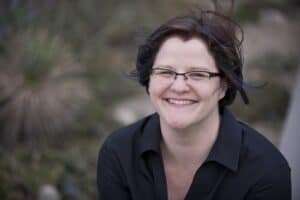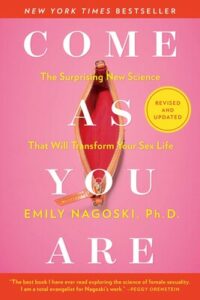Responsive vs. Spontaneous Desire (updated)
I hear from readers all the time who tell me they rarely or never feel desire for sex anymore. I also hear from readers who mourn the lack of sex in their relationships because their partners don’t feel desire anymore. Let me give you a different way to think about desire:
Many of us do not experience what’s called “spontaneous desire.” Our sexy bits and brain don’t go boom in advance — “a lightning bolt to the genitals,” as Emily Nagoski, Ph.D., author of Come As You Are: The Surprising New Science That Will Transform Your Sex Life, describes it. Instead, we may experience “responsive desire,” which means that after we start feeling pleasure, our bodies start getting aroused, and then the desire follows. “Desire emerges in response to pleasure,” says Nagoski.
A sure sign that this is your desire pattern is if you enjoy partnered or solo sex after you get started, but you don’t necessarily feel driven or desirous ahead of time. You’re not against it, and you really enjoy it once you get going, but you don’t feel those urges until you start receiving pleasure. Then your body responds, your brain fires, and you’re into it with relish. You may find yourself saying afterward, “Why don’t we do this more often?”
Feeling desire in advance is not a requirement for good sex. In fact, putting off sex until you feel spontaneous desire will just mean you’ll have sex much less often. Instead, plan your sexual encounters (with a partner or solo) frequently, and leave time for slow pleasure and arousal.
When I explained the difference between spontaneous desire and responsive desire at a talk some years ago, a woman in the audience emailed me, “You may have just saved my marriage.”
I talk about spontaneous vs. responsive desire (and much more!) in two of my webinars — 7 Steps to Reclaiming Your Sexual Pleasure and 12 Steps to Sexy Aging – Starting Now! Learn more about responsive vs spontaneous desire in this article I wrote for Hot Octopuss.
[This tip, originally published June 8, 2019, was updated June 25, 2021 with quotes from Emily Nagoski’s AASECT 2021 plenary.]
 Emily Nagoski, Ph.D, explains responsive desire in her excellent book, Come As You Are: The Surprising New Science That Will Transform Your Sex Life. This must-have sexuality resource, originally published 2015, was revised and updated in 2021, so be sure to get the latest edition.
Emily Nagoski, Ph.D, explains responsive desire in her excellent book, Come As You Are: The Surprising New Science That Will Transform Your Sex Life. This must-have sexuality resource, originally published 2015, was revised and updated in 2021, so be sure to get the latest edition.
